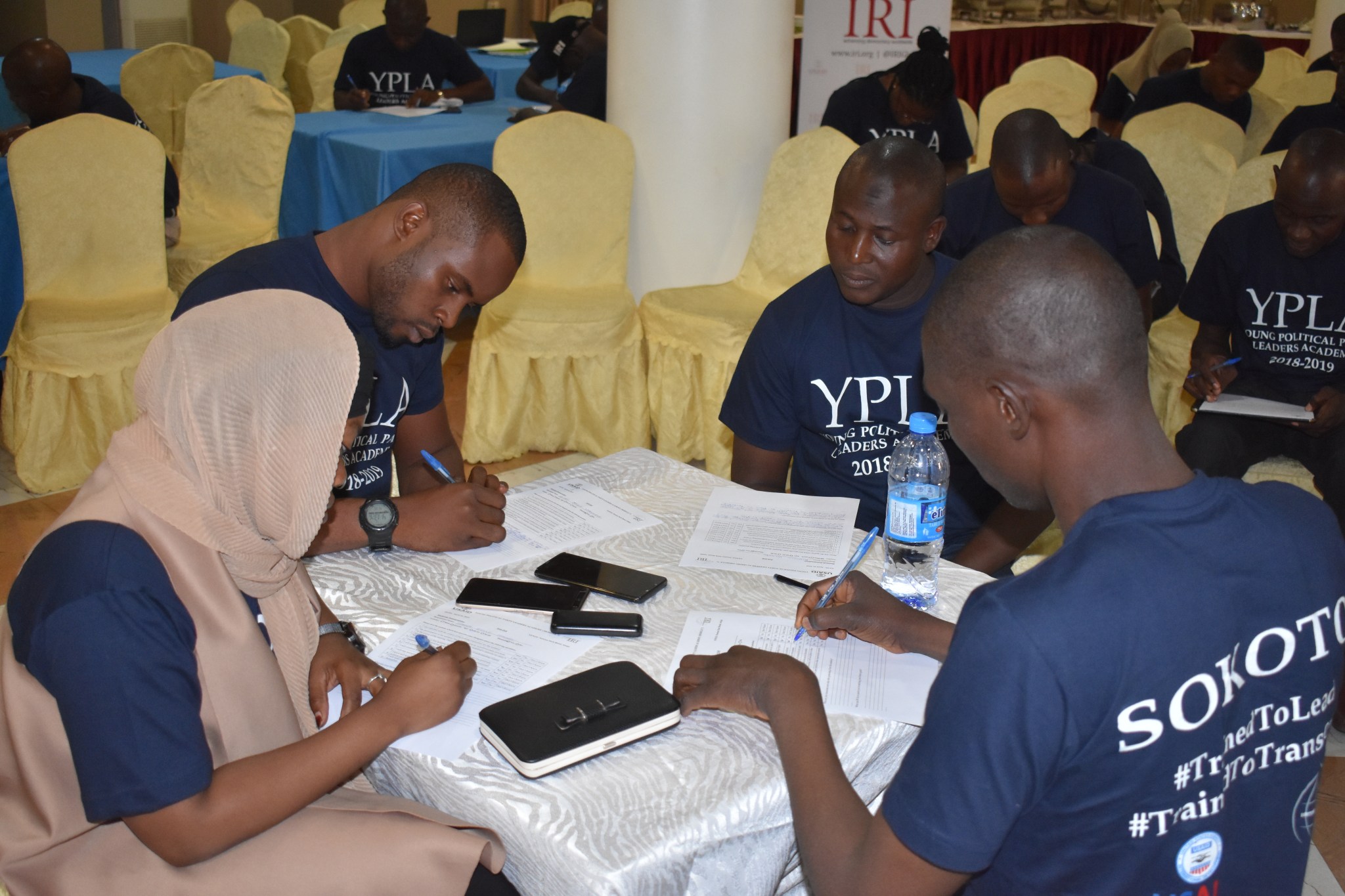Looking to the Future: Equipping Nigeria’s Next Generation of Party Leaders

History is full of examples of countries where a large population of politically disengaged and disaffected youth resulted in political upheaval and instability. With more than 50 percent of its population under the age of 30, youth engagement in Nigeria is crucial to the country’s political functioning and democratic future. For this reason, the International Republican Institute’s office in Nigeria (IRI) launched the Young Political Party Leaders Academy (YPLA) to equip the next generation with the skills needed to succeed.
The Not Too Young to Run Bill, signed into law in 2018, was an important step forward in engaging young people in the political process. It broadened the space for youth political participation by reducing the minimum age requirements for candidacy across Nigeria’s elected positions, including presidential, governorship and legislative posts. However, the need to create pathways for stronger youth influence within Nigeria’s political parties remains a challenge.
IRI’s Nigeria office launched a six-month training program to equip youth party volunteers with the skills to conduct research on policy issues and participate in political party decision-making processes. The YPLA program was designed to empower marginalized groups within the parties to play active roles and motivate a new generation of party leaders who can affect changes within their parties. Academy participants were selected by their parties in the Adamawa, Bauchi, Ebonyi and Sokoto states. A total of 75 volunteers, including 21 women, completed the program.
The program’s training modules covered a wide array of topics including the role of political parties in democracy and governance, conflict management and resolution, constituency engagement and research, and the role of political party poll agents in elections. Experts ran practical sessions that created opportunities for the youth volunteers to engage one another within and across parties.
After advocating to their party leaders for increased youth representation in party initiatives, volunteers in Adamawa, Bauchi and Sokoto were provided with computer-equipped office spaces in the party secretariat to aid research for policy development. Others used their campaign management training to conduct town hall meetings and community service activities to garner support for their parties ahead of the February and March general elections. Several volunteers even sought their party’s nomination for candidacy in the general elections and one was appointed chairperson for the committee on mobilization in his local government area.
IRI looks forward to continuing to support its YPLA graduates as the program shifts its focus from winning to governing and intends to train support staff for the newly inducted State House of Assembly members. By maintaining its youth capacity-building objective and finding creative ways to build youth capacity toward leveraging their skills within political parties and state legislatures, IRI continues to cultivate in Nigeria’s elected officials and political party leadership, the necessity for intentional youth engagement in places of decision-making and the value these individuals bring to Nigeria’s political landscape.
Top